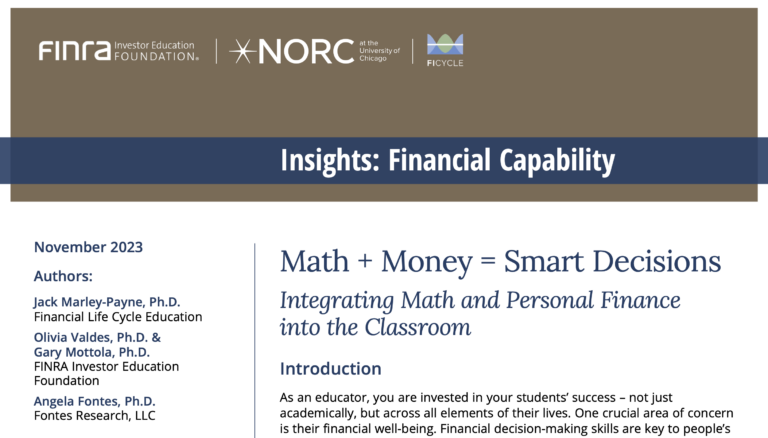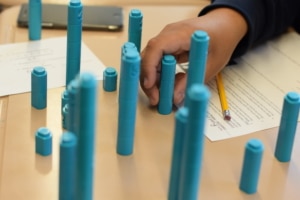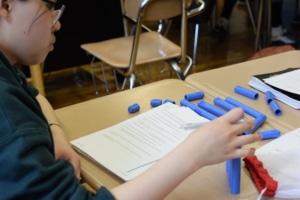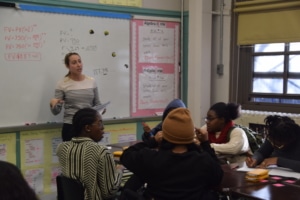As a mission-driven non-profit organization, FiCycle is committed to promoting best practices in education. Central to our mission, we undertake research into effective mathematics and finance education. Our research demonstrates the efficacy of teaching math and finance in an integrated curriculum and guides us in the creation and implementation of our educational program. Below, read the latest research supporting the FiCycle approach.
We also conduct additional research into further topics relevant to improved teaching and learning. You can find our latest published papers and working papers here.
